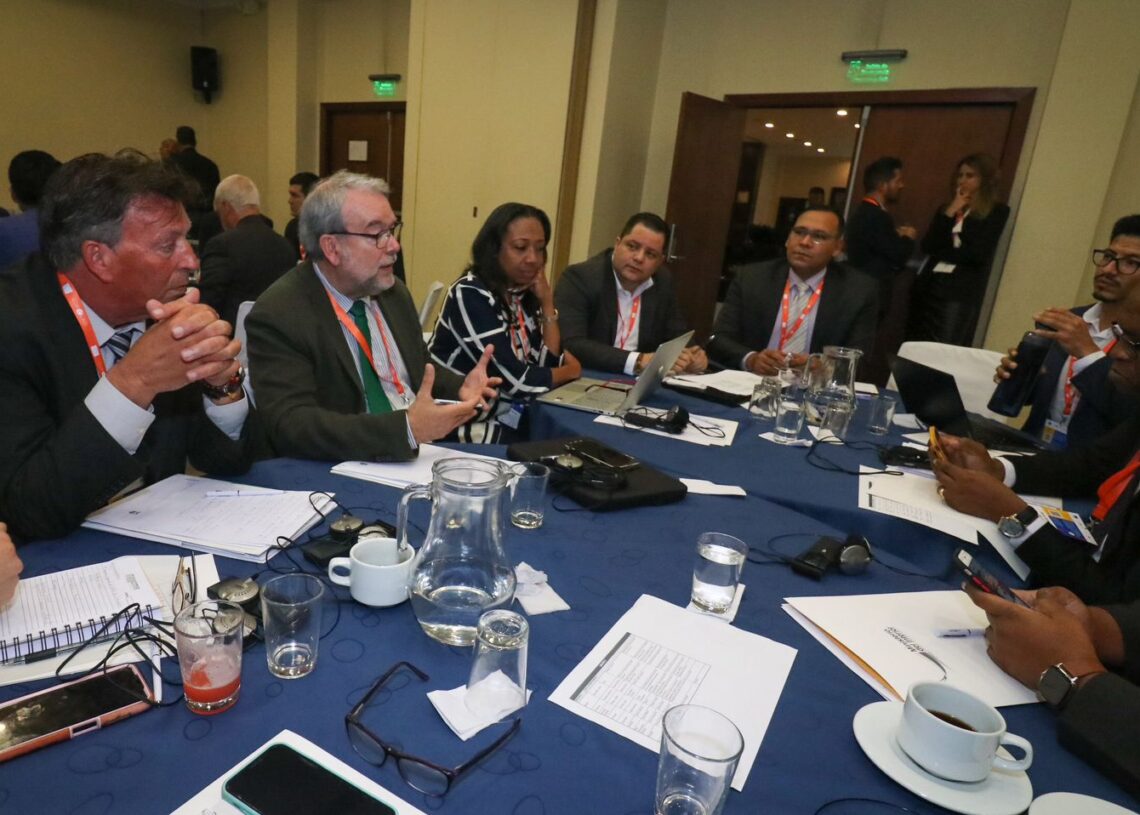Trends in cocaine production and trafficking, judicial control of drug precursors, the situation of precursors in the European Union, the model regulation of the Inter-American Drug Abuse Control Commission (CICAD) as a tool to strengthen the control of precursor chemicals in the region, were among the topics addressed at the Workshop for the exchange of information and intelligence and improvement of management systems and disposal of seized chemicals, held this week in Quito by the COPOLADIII programme.
As part of the activities included in the work agenda, the Programme for Cooperation between Latin America and the European Union on Drug Policy in coordination with the Ministry of the Interior of Ecuador scheduled a Study Visit, with more than 50 participants, to learn about the processes carried out in the storage sites of seized drugs. There, experts in the process of drug detection and management explained in a practical way the procedure to be followed after the seizure.
Study Visit
For example, the encapsulation of substances is carried out in a company located in Cayambe, which complies with technical procedures related to environmental care, the use of materials and reagents to carry out chemical tests, but above all the reuse of the product obtained once the drug has been processed and encapsulated. This material, when mixed with cement, is used to build infrastructures.
In terms of the final disposal of seized chemicals, the COPOLAD III Programme, with its initiative to improve processes and management protocols, seeks to reduce waiting times for the destruction or donation of seized substances. For this reason, it is essential to train judges and prosecutors to understand the importance of speeding up the processes to dispose of these substances and not allow them to remain in storage for longer periods of time. According to chemistry expert Milagros Diego Risco, an expert on precursors from the Spanish Ministry of the Interior, the consequences are clear: “failure to do so properly can lead to serious accidents that affect the environment and health”.
The workshop for the exchange of information and intelligence and the improvement of management and disposal systems for seized chemicals was aimed at the heads of the countries that are part of the working group created by COPOLAD III on the control of chemical precursors for the manufacture of illegal drugs, led by Ecuador. Also participating in this group are Chile, Bolivia, Colombia, Costa Rica, Panama, Spain, Portugal and Romania.
Among the participants were judges, prosecutors, police, authorities responsible for the control of controlled chemical substances, representatives of UNODC, CICAD and CITCO. For Luisa Gómez, from the Colombian Ministry of Justice, the cooperation between Latin American and Caribbean countries, thanks to the COPOLAD III initiative, is something new and enriching. The exchange of strategies and ideas on the issue of drugs and precursors allows Colombia to contribute to the management of the control of these substances.






